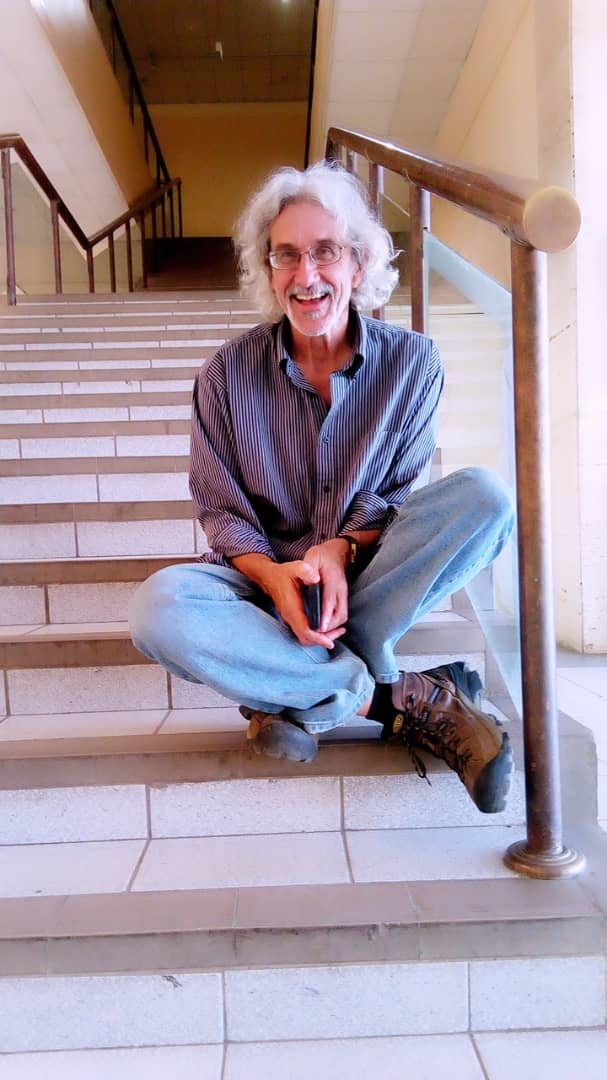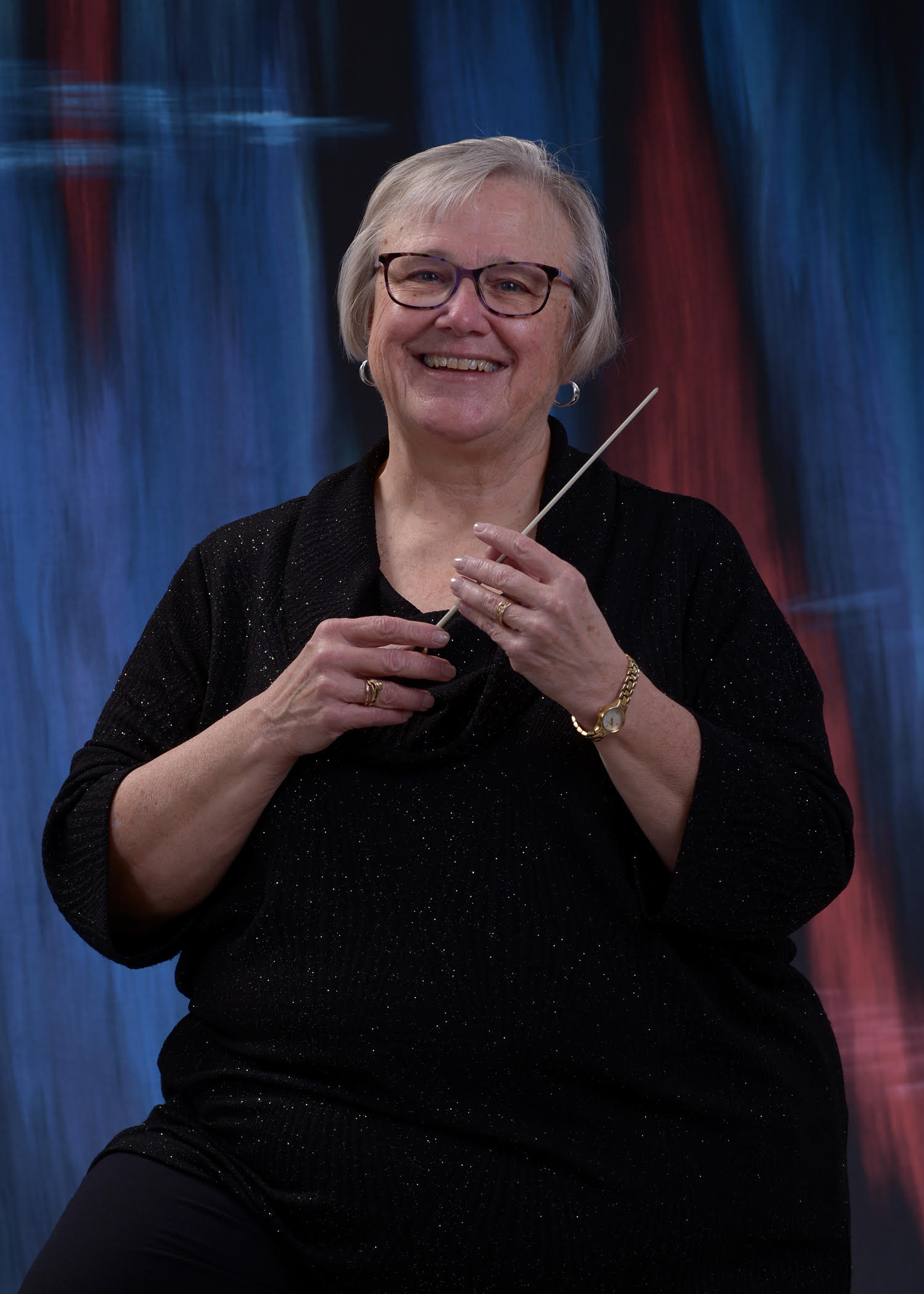2026 HighlightsKeynote Speaker: Milton Allen
Dr. Milt Allen is an award-winning conductor, educator, author and keynote speaker whose career thrives at the intersection of music, innovation, and human empowerment. A thought leader and avid adventurer, he believes that both great music and meaningful growth begin with curiosity, courage, and the willingness to explore beyond the familiar Throughout his career, Dr. Allen has transcended conventional paths in music education, creating bold, human-centered approaches that foster authentic empowerment within organizations and communities. Whether conducting honor bands, guiding educators through transformative clinics and workshops, or collaborating across cultures, he brings vision, strategy, and genuine connection to every endeavor. His international experiences - from the intensity of rehearsal rooms to remote regions around the globe - have strengthened his conviction that music is a universal language and a powerful force for empathy, collaboration, and change. With decades of experience as a conductor, educator, and consultant, Dr. Allen blends actionable insight with an unyielding passion for human development. His work encourages creativity, calculated risk-taking, and empathy-driven communication as essential tools for thriving in today's rapidly shifting educational environment. A recognized advocate for teacher well-being and mental health, Dr. Allen offers tangible strategies for resilience and sustainability in high-stress professions. At his core, he empowers others to embrace challenge, adapt with purpose, and evolve continuously - both personally and professionally. Like any great adventure, or great performance, his philosophy is simple: life, like music, should be experienced with passion, curiosity, and heart. (Dr. Allen is an artist educator for Jupiter Instruments and is published by GIA/Meredith Music.) It's Not OK, But We're Gonna Be Alright
Pre-Conference:
Mrs. Dwyer became Artistic Director with the Lilly Chorus (LC) in January of 2023. LC is a social opportunity and community service group for Eli Lilly employees, spouses, adult family members, and retirees. She is excited to be a part of this long-standing arts representative of the Eli Lily Corporate Family. Mrs. Dwyer recently retired from the Indianapolis Children’s Choir (ICC) after 35 years as conductor and Director of Education and former Artistic Director of the Columbus Indiana Children’s Choir. Her ensembles have performed with the Indianapolis Symphony Orchestra, the Columbus Indiana Philharmonic Orchestra, the Indianapolis Opera, in Carnegie Hall, Lincoln Center, across North America, and throughout Spain and Central Europe. Mrs. Dwyer’s teaching experiences include 19 years as a public school music educator in Seymour, IN, Wayne Township, and as an adjunct professor of music education with Butler University. Mrs. Dwyer has authored several music education textbooks for ICC (now available in digital format online: Bechenhorst Press) and is a frequent guest author for the Hal Leonard choral music textbook series. She is an accomplished composer, arranger, and editor of the Ruth Dwyer Choral Series with Colla Voce Music. Her ensembles have recorded choral demos for Hetitage Music, Hal Leonard, and Alfred publishers. She is also the Founder and Artistic Director of the Hoosier Hills Choral Festival in Southern Indiana and was the founder of the non-profit organization, Philanthropy Through Song, which presented choral festivals supporting anti-drunk driving education. Mrs. Dwyer is a graduate of Indiana University's Jacobs School of Music. She enjoys reading, sailing, traveling, gardening, and time with friends and family. Session: The Ear Before The Eye Preparing and Developing the Harmonic Ear Grades 1-10
This session will explore the sequence of general music and choral activities for developing pitch-matching skills through several levels of choral singing. This session will include a reading session incorporating how to integrate music literacy into choral reading. The chosen repertoire will include Unison, SA, SSA, SAB and SATB octavos.
 Lorelei Batisla-ong (BM, Southwest Texas State University; MM Instrumental Conducting, Texas State University; Ph.D. Music and Human Learning, The University of Texas at Austin) is Assistant Professor of General Music Education at Peck School of the Arts, University of Wisconsin-Milwaukee. For 14 years she taught elementary music in San Antonio and Austin public schools, as well as university courses at UT Austin, University of the Incarnate Word, and Anderson University. Prior to teaching at University of Wisconsin-Milwaukee, Lorelei taught at Baldwin Wallace University near Cleveland, Ohio. Lorelei Batisla-ong (BM, Southwest Texas State University; MM Instrumental Conducting, Texas State University; Ph.D. Music and Human Learning, The University of Texas at Austin) is Assistant Professor of General Music Education at Peck School of the Arts, University of Wisconsin-Milwaukee. For 14 years she taught elementary music in San Antonio and Austin public schools, as well as university courses at UT Austin, University of the Incarnate Word, and Anderson University. Prior to teaching at University of Wisconsin-Milwaukee, Lorelei taught at Baldwin Wallace University near Cleveland, Ohio.They served on the American Orff-Schulwerk Association Board of Trustees, was the State Director of the National Association for Music Education – Texas and currently serves as an officer for the Music Education Special Interest Group of the American Educational Research Association. She is Lead Editor of Decolonizing the Music Room and co-author of Elemental ʻUkulele: Pathways and Possibilities. Lorelei’s teaching and learning interests include ʻukulele pedagogy, teacher noticing and cognition, teaching skills development, equity in the classroom and teaching profession, and generally wondering why everything is the way it is and how it can be better. She is perpetually considering getting a dog. Session: More Than Chords: "Adding 'Ukulele Fingerpicking to the I, IV, V
The goal of this pre-conference session is to demystify teaching ʻukulele fingerpicking in a general music classroom. Through multiple activities, participants will experience fingerpicking first as performers and then examine a pedagogical approach for beginning players focused on concepts, technique, and strategies for teaching technique. After the “what” will look at the “how” and the “why.” Throughout the session we will revisit chordal playing to identify ways to integrate both fingerpicking and chordal playing offering multiple modes of performance for students. We will examine fingerpicking as differentiation and within ideas of universal design. And we will discuss the practical management and organization considerations multiple modes of performance may require of us as teachers and facilitators who are interested in creating opportunities for student success. Participants will leave with practical ideas and strategies that may help introduce a new way to play and teach the ʻukulele. Come one, come all! Basic playing experience is welcome, but not necessary. Both experienced ʻukulele teachers and teachers looking to start ʻukulele are welcomed. Please consider bringing your ʻukulele and/or a recorder. We will utilize all the instruments of the elementary music classroom.
For more information visit the Pre-Conference page HERE.
|


 Ruth E. Dwyer
Ruth E. Dwyer

